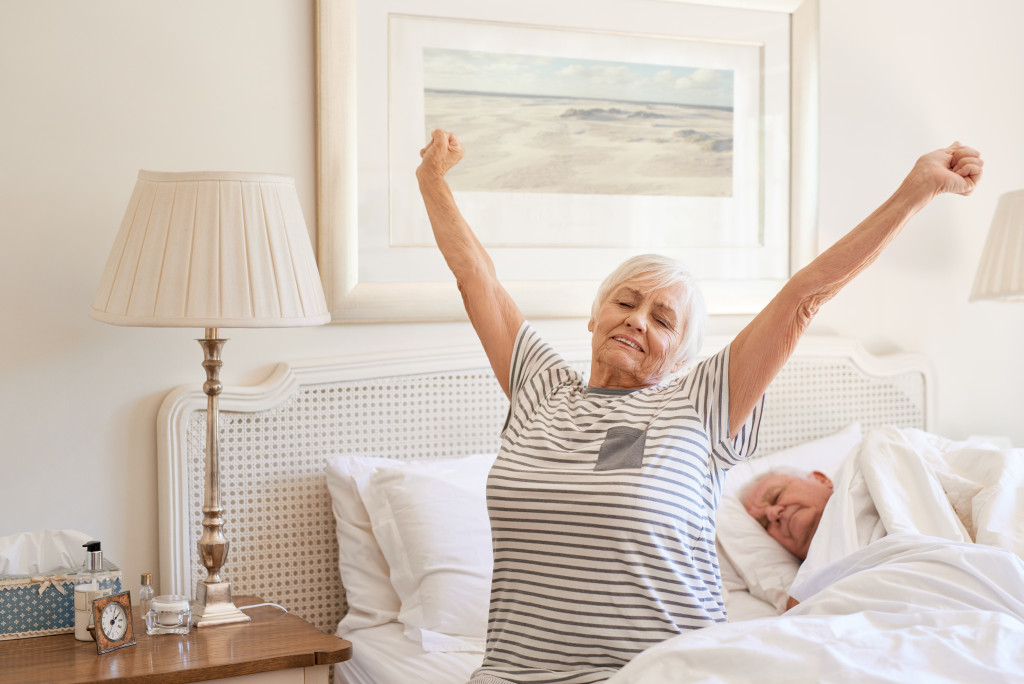- Aging is inevitable, but how you age can be managed through exercise, socialization, nutrition, mental health, and quality sleep.
- Regular physical activity helps maintain strength and balance, reduces the risk of falls, and improves the quality of life.
- Connecting with friends and family can significantly impact well-being, explore new interests and join senior centers.
- Eat well; prioritize fiber, vitamins, minerals, and limit fats, processed foods, and sugars.
- Supplement with vitamin D and calcium to reduce the risk of age-related illnesses like dementia.
The average number of people aged 65 or above between 2023 and 2053 is expected to be 73 million, according to the Congressional Budget Office. These individuals are typically eligible for Social Security and Medicare benefits and are less likely to participate in the workforce. This quantity is roughly twice as much as the average number of people in this age category between 1983 and 2022.
Aging is inevitable, but the way you age is not. Living healthily and happily in senior years is a topic anyone can benefit from. Aging brings physical and cognitive changes that can be difficult to manage, but it doesn’t have to be that way. There are ways to unlock the secrets to senior well-being and age gracefully.

Exercise
It is said that staying active and exercising regularly is the key to healthy aging. Regular exercise helps maintain strength and balance, reduces the risk of falls, and improves overall quality of life. Moreover, it can keep the mind sharp and delay cognitive decline.
Integrate into Daily Routine
Engage in activities such as walking, swimming, dancing, or yoga, that can be easily integrated into a daily routine. Exercising also helps boost endorphins, which elevates mood and maintains a positive outlook on life.
Socialization
Trying to stay connected with friends and family can significantly impact senior well-being. Socialization makes seniors feel valued, improves cognitive health, and prevents feelings of loneliness or isolation. Participating in group activities and joining senior centers are great ways to foster new relationships, maintain existing ones, and explore new interests.
Leverage Technology
Additionally, video calling can make staying in touch easier and more convenient. Encourage your older family members to stay connected with friends and family, both near and far! Socialization is vital for seniors’ mental well-being.
Nutrition
Eating well remains one of the important ways one can maintain a healthy lifestyle. Seniors have unique dietary needs, and proper nutrition can help combat age-related illnesses and maintain overall health. Foods high in fiber, vitamins, and minerals and low in fats should be prioritized. It’s also important to stay hydrated and limit processed and sugary foods. Eating various fruits and vegetables is essential for seniors to receive the nutrients they need.
Diet Supplements
It’s also crucial for seniors to supplement their diets with vitamin D, as studies have shown that it may help reduce the risk of age-related illnesses like dementia and heart disease. Calcium supplementation can also be beneficial in helping improve bone health.
Mental Health
Aging can lead to feelings of anxiety, depression, and loneliness. Addressing these feelings and working with a professional to deal with them is essential. Seniors should seek support from their loved ones, engage in hobbies, and partake in activities that bring them joy. Finding a healthy balance between physical exercise and mental stimulation is essential.
Professional Help
If you or a loved one is experiencing severe mental health problems, seeking professional help can be vital to getting the necessary care and support. Talking to a therapist, psychiatrist, or psychologist can help seniors deal with their emotions and find ways to cope with them.
Help at Home
If the senior adult needs help to perform everyday tasks, you can hire a reliable home health aide. The aide can help with meal preparation, medication management, and other activities of daily living. Additionally, a health aide can provide companionship to the senior adult during their difficult times.

Sleep
Quality sleep is vital to healthy aging and can help protect against memory issues and more serious health conditions. Establishing a regular sleep routine, avoiding caffeine before bed, and having a comfortable sleeping space can all promote good sleep hygiene. In addition, some people benefit from using relaxation techniques such as deep breathing or guided imagery to help them fall asleep.
Sleep Requirement
It is also important to remember that the amount of sleep you need changes as you age – younger adults may need up to nine hours per night, while seniors often find they get enough rest with seven to eight hours of sleep.
Regular Exercise
Additionally, getting regular physical activity and reducing stress can help make it easier to fall asleep and stay asleep. If you have difficulty sleeping, consult your doctor about potential causes or solutions, such as relaxation techniques or medications. Getting enough quality sleep is essential to maintaining good health as people age.
Healthy aging is not rocket science. It’s possible to age gracefully, remain active, and enjoy life. Seniors require specific attention regarding health and well-being, and their needs should not be ignored. The secrets to senior well-being are a combination of exercise, socialization, nutrition, mental health, and quality sleep. By prioritizing these recommendations, seniors can maintain their independence and physical and cognitive health and enjoy their lives to the fullest. Remember, age is just a number, and healthy is the new normal when it comes to aging.

